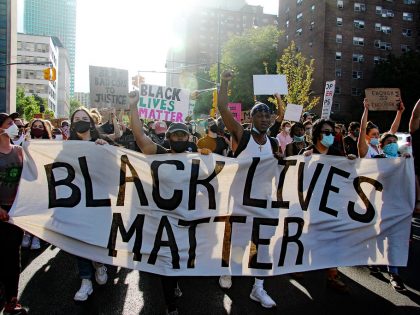
Um abraço em escuta
Ekwa Msangi, realizadora Tanzaniana-Americana, mostra a história de muitos imigrantes com a experiência de uma família angolana de imigração.

Ekwa Msangi, realizadora Tanzaniana-Americana, mostra a história de muitos imigrantes com a experiência de uma família angolana de imigração.

What might Black Lives Matter learn from Africanist scholars who have studied inequality outside the US, especially in Africa?

Reflections from a former President of the African Studies Association (ASA), the largest African Studies association globally, on the future of the discipline.


Hip hop and the Black political mainstream more broadly, continues to have hope in the promises of American capitalism.

The stories of African immigrants to the United States tell vivid tales of unimaginable anti-Blackness through foreign terrains.

Beyonce offered me escapism in my childhood. But now I see the contradictions and shortcomings in her claimed radicalness.

Beyoncé, 'The Lion King,' 'Coming to America,' and the complicated politics of African representation in Black American cultural production.

Three prominent curators on how they are (re-)situating their respective curatorial practices in relation to the political moment.

It took time to digest Beyonce's Black Is King. Conclusion: it fails to deliver us. Instead, it's just another capitalist construction of the world.

In this, the first of a series of posts, we critically look at the implications of climate policy in the most powerful Western country for Africans.

Americans could learn a thing or two from Africans’ history of resisting structural adjustment policies.

The book 'Emerald Labyrinth' explores American and Congolese efforts to document species biodiversity.

Kamala Harris should be critiqued or celebrated not according to a faulty and disingenuous understanding of her lineage, but on the basis of her actual policy positions and future governing vision.

What if you survey African literature professors to find out which works and writers are most regularly taught? Only a few canonical ones continue to dominate curricula.

Rather than addressing food scarcity, genetically modified crops may render African farmers and scientists more, not less, reliant on global markets.

Plutôt que de pallier l’insécurité alimentaire, les cultures génétiquement modifiées risquent de rendre les agriculteurs et les scientifiques africains plus, et non moins, dépendants des marchés mondiaux.

The blitz on monuments signifies not the abandonment of history, but rather the rejection of a narrative of modernity created by the heirs of global plunder.

When a young Ethiopian, Haile Gerima, made a film about the exploitative nature of American college sports and the role of Black athletes in society.

Black Lives Matter protests build on a long history of anti-racist solidarity and struggle across the Atlantic.